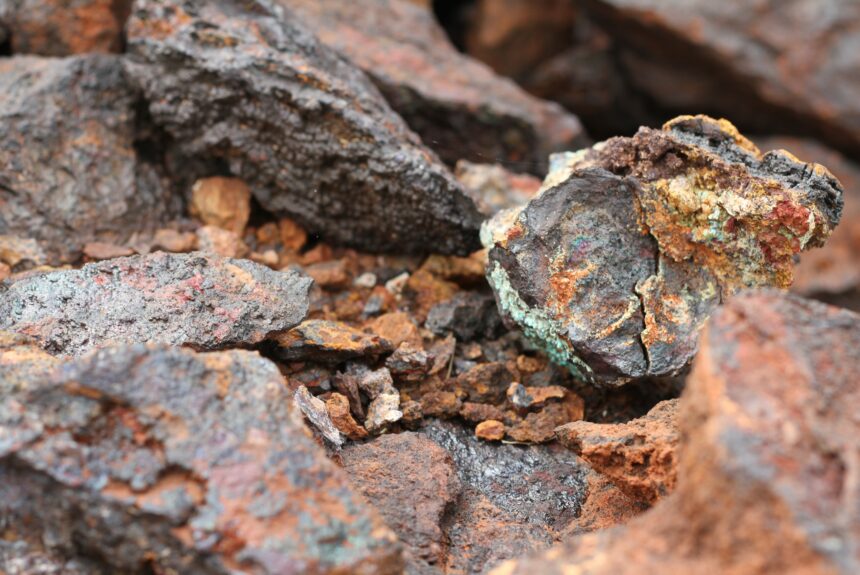The Lower Energy Costs Act (H.R.1) would help solve a fundamental problem that plagues all energy sources and technologies: America’s broken permitting system. Burdensome and inefficient permitting processes in the United States have slowed down energy development and invited drawn-out lawsuits, which have made it very difficult to increase supply and lower costs for American families and businesses. Such obstructionism adversely affects the domestic extraction and processing of the natural resources required to power renewable, nuclear, and battery technologies. Several provisions in H.R.1 include much-needed reforms to develop and process the critical and key minerals necessary for expanded clean energy deployment. Streamlining permitting will incentivize investment and job creation, enhance American competitiveness, and unlock the essential resources for advanced energy technologies.
>>>READ: How America Can Diversify its Critical Mineral Supply Chain
As it stands today, and for the foreseeable future, renewable and many clean energy technologies are mineral dependent. An International Energy Agency (IEA) report details the critical minerals necessary for low- and zero-carbon dioxide power generation and transportation. Whether it is wind, solar, hydro, nuclear, electric vehicles, battery storage, hydrogen, geothermal, or bioenergy, every one of these clean energy technologies requires a moderate or high amount of at least two key minerals. Several technologies, most notably wind, batteries, and hydrogen, have moderate to high needs for four or more critical minerals. Clean energy technologies are also significantly more mineral intensive than their conventional counterparts.
Addressing climate change will require significant increases in the critical mineral supply. Setting aside the attainability and potential costs of net-zero targets, a substantial number of key minerals will be needed to meet any emissions target. To meet net-zero targets by 2050, the agency estimates the world will need 43 million metric tons of critical minerals, a sixfold increase from 2020 levels. Far less ambitious scenarios still include substantial needs for key minerals.
Of course, projecting resource requirements across multiple decades is not a prediction but is instead an assessment of the potential demand for critical minerals. Expert predictions of peak oil, food shortages, and resource exhaustion have come and gone, often with little accuracy. Projections often assume that past trends and the status quo will continue. Markets change as innovators drive efficiency and technological progress. It is worth projecting future critical mineral needs with some humility and optimism that markets will find ways to responsibly meet consumers’ needs, which may or may not include the use of these minerals. Solutions to drive clean energy deployment will likely include some combination of expanded supplies, recycling, and the development of cost-competitive substitutes.
Policymakers must recognize the importance of critical minerals, the economic and technological realities of future demand, and the benefits of market competition to meet consumers’ needs. H.R.1 provides many of the legislative fixes to liberalize America’s abundance of resources and boost key minerals processing to establish more secure supply chains. Opening access and providing regulatory certainty will empower the private sector to invest, build, and supply the resources necessary to affordably keep the lights on and power the economy.
>>>READ: Rep. Pete Stauber Discusses the Need for Permitting Reform to Boost Domestic Mining
Unsurprisingly, reforms to capitalize on America’s resource abundance, create jobs, and lower energy prices are extremely popular. A recent poll commissioned by the Citizens for Responsible Energy Solutions (CRES) of Republicans and Independents nationwide found that 77 percent of respondents “want to streamline permitting and remove regulatory barriers to make it easier to extract and process the critical minerals in the United States.” Eighty-three percent favor an all-of-the-above approach to energy policy. A battleground poll conducted last year by C3 Action also found broad support for improving access to critical minerals. Only 14 percent of respondents would oppose congressional action easing access to American sources of key minerals.
Any successful all-of-the-above energy policy that helps Americans’ pocketbooks and drives environmental progress requires access to the resources below.
The views and opinions expressed are those of the author’s and do not necessarily reflect the official policy or position of C3.
